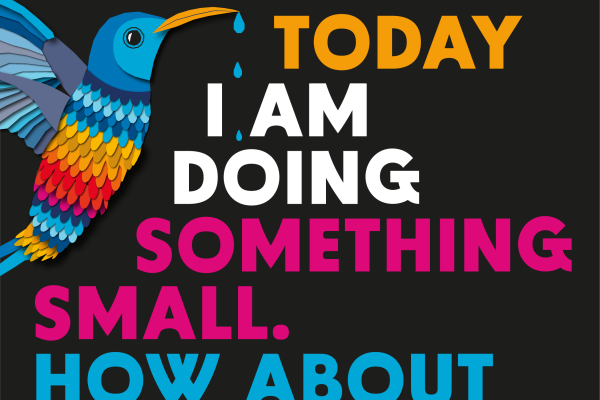More than ever, being conscious of people and the environment is crucial. On World Water Day, 22nd of March 2023, we raise awareness to be more conscious about local and global actions and impacts. Having water challenges deeply embedded into its core, the CHARM-EU Alliance is committed to raising awareness about the water and sanitation crisis worldwide and educating future generations. Leaders, step by step, create spaces and environments caring for the lives of today and the next generations as well as the communities most affected by global challenges.

Clean water is not a privilege. It is a human right. Acknowledging everyone’s role is crucial to create change in our societies. Only joint efforts will enable us to seek global human rights-based and intersectional solutions to tackle global societal challenges, including water and sanitation. In alignment with our vision and mission, part of our work on inclusion and diversity is to create an innovative university model that identifies and reflects on social challenges and seeks local and global solutions with the cooperation of the wider community.
Water remains a cross-cutting issue
Water is an underlying challenge or consequence. All major global issues are crucial, from peace, health, education, hunger, climate change, and gender equality to employment and many more. There was a global commitment in 2015 to achieve clean water and sanitation by 2030 by making it one of the UN’s 17 Sustainable Development Goals (SDGs). We are still seriously off-track from this target. The Day was first observed in 1993 when The United Nations General Assembly proclaimed World Water Day. The UN and its member nations devote this Day to implementing UN recommendations and promoting concrete activities about the world’s water resources within their countries. UN member states and several organisations promoting clean water and sustainable aquatic habitats have used World Water Day to focus public attention on the critical water issues of our era. Issues such that billions of people need access to safe water for drinking. Access to safe water, sanitation and hygiene is a human right. Water affects everyone; it is fundamental to all aspects of life. It is essential for one’s health and well-being. Water demand is increasing due to several reasons like growing population and urbanisation. Therefore, we all need to act. We can make a difference by changing how we use water daily.
Thematic focus in 2023
This year, the United Nations observance focuses on accelerating change to solve the water and sanitation crisis. The World Water Day campaign in 2023 is called “Be the change”. This campaign encourages people to act to change how they use, consume, and manage water. The promises made by individuals on the campaign website will be added to the Water Action Agenda, a main outcome of the UN 2023 Water Conference- the first event of its kind for nearly 50 years. The Water Action Agenda is a collection of voluntary commitments from governments, companies, organisations, institutions, coalitions, and members of the public, designed to deliver rapid progress on internationally agreed water and sanitation targets. The UN 2023 Water Conference will be held in New York from 22-24 March 2023.
CHARM-EU’s commitment to working towards inclusive and just societies.
CHARM-EU and its Master’s recognise that all students and stakeholders must step-by-step design and implement aspects of inclusion, diversity, human rights, and non-discrimination within our organisation’s culture, operations, educational activities and final educational projects. CHARM-EU strongly believes in creating spaces to empower students to be future leaders to make a difference. Water is deeply embedded into CHARM-EU’s Master’s in “Global Challenges for Sustainability”. After the program’s first semester, students can select a thematic path: Life & Health, Food, or Water. Students learn and work about water-related challenges and, during the final semester, solve sustainability challenges linked to the water alongside stakeholders from business and civil society. The first CHARM-EU cohort who just graduated in January 2023 will undoubtedly be among those striving to make a change, now and in the future! We are delighted that our Master’s programme discusses many human rights perspectives, including in the Water Track. The upcoming interactive student project discussion session explores and discusses human rights aspects of water. Joint efforts of the CHARM-EU community and actors will foster awareness-raising and create a more just, inclusive society. We are committed to shaping minds and developing structures to realise the UN SDG’s values meaningfully. Realising the SDGs requires everyone’s business and actions, regardless of size. A range of resources created by the UN Department of Economic and Social Affairs includes the Lazy Person’s Guide to Saving Water. A toolkit that offers step-by-step guidance and materials on how to move beyond the Be the change campaign and helps to expand your knowledge about water.
Joins us to raise awareness by using the hashtag #WaterActions; #WorldWaterDay on social media. Find more information by visiting the following link: World Water Day 2023: Be the change | UN-Water (unwater.org)
References:
United Nations World Water Day 2023: Be the official change website: World Water Day 2023: Be the change | UN-Water (unwater.org)
United Nations World Water Day 2023 official website: World Water Day | World Water Day 2023
United Nations Sustainable Development Goals A Lazy Person’s Guide to Saving Water official website: The Lazy Person’s Guide to Saving Water – United Nations Sustainable Development
Credit:
The contribution was prepared in collaboration with Enikő Bíró, a student volunteer (ELTE BGGYK) & CHARM-EU colleagues.